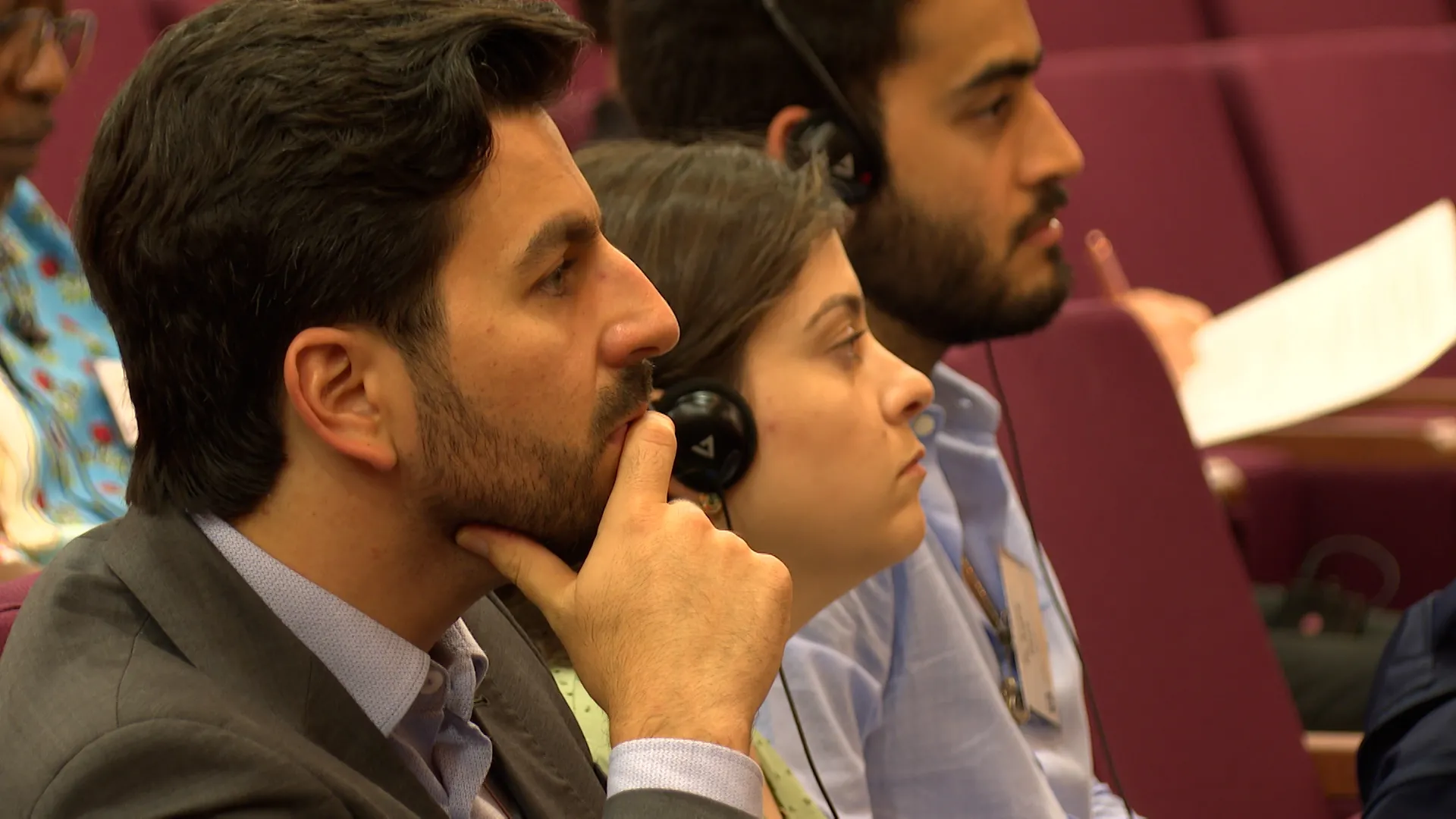
St. Louis, Mo., Sep 25, 2022 / 09:00 am (CNA).
A Catholic doctor’s right to conscientiously object to medical procedures that conflict with his or her faith was a topic of discussion at a recent conference for Catholic physicians meeting in Rome.
The 26th World Congress of Catholic Physicians was put on Sept. 15–17 by the International Federation of Catholic Medical Associations, which represents 120,000 members in 80 Catholic medical associations across the continents and is the only organization of physicians recognized by the Vatican. The organization’s world congresses are held every four years in different areas of the world.
Vincent Kemme, founder of the Belgian bioethics organization Biofides, which co-organized the Congress, told EWTN News that his organization has observed a shift in recent years, especially in the low countries of Europe, away from conscience protections for the medical profession. Countries such as Belgium and the Netherlands have been at the forefront of offering euthanasia and assisted suicide, and doctors who personally object to the practice must still refer patients.
“In Europe and the United States, the introduction of relativism and moral subjectivism has completely changed the profession of the doctor,” Kemme told EWTN News.
“Where the physician used to be someone who healed, who comforted, who gave care if there was no healing possible, he has now become an instrument to do whatever the patient wants,” he continued.

Kemme said Catholic medical organizations around the world, including the Catholic Medical Association (CMA) in the U.S., are “fighting to defend conscientious objection.” Most recently, the CMA spoke out against a proposed Biden administration rule in July that, if finalized, would force hospitals and doctors to perform gender-transition surgeries and abortions, legal experts say.
“We need to safeguard the right for doctors to object to certain practices, not only the actual procedures of euthanasia, abortion, and gender reassignment but also the requirement to refer patients to a doctor who will perform such a procedure. This, too, is participation in an immoral act,” Kemme told EWTN News.
The September conference included discussions with young physicians about bioethical challenges they have faced.
“We at the Federation do not have solutions for every particular conflict that may arise for Catholic physicians. But we want to emphasize formation — anthropological, philosophical, and theological formation — so that the students not only learn how to be excellent doctors in a technical medical way, but that they are also excellent Catholics in that they know what they believe in, and they can witness of their faith in a reasoned manner,” Kemme said.
“Hospitals need more than just economic success. They need to recognize the divine value of human life. We need to rediscover what the role of the physician is,” he said. “As Christians, we understand that our task is to heal and repair the human person, but not to have the arrogance to think that we can change and transform it. We are not here to change human nature. No, we have to respect that as a gift from God.”
Pope Francis has emphasized the importance of conscientious objection protections for medical professionals.
“You are always at the service of human life,” he told a group of pharmacists at the Vatican in 2021. “And this may in some cases involve conscientious objection, which is not infidelity, but on the contrary, fidelity to your profession, if validly motivated.”
The pope noted that today it is fashionable to think that “removing conscientious objection” is a good idea, but, he said, protection of one’s conscience is the ethical right of every health professional and can never be negotiated.
Conscientious objection “is precisely the fundamental responsibility of health professionals,” the pope added, “and it is also a denunciation of the injustices committed against innocent and defenseless human life.”
If you value the news and views Catholic World Report provides, please consider donating to support our efforts. Your contribution will help us continue to make CWR available to all readers worldwide for free, without a subscription. Thank you for your generosity!
Click here for more information on donating to CWR. Click here to sign up for our newsletter.




I suspect the overwhelming majority of them are pro-vaccine mandates, so it is somewhat hard to sympathize with them, even if I think certain procedures are immoral.
.